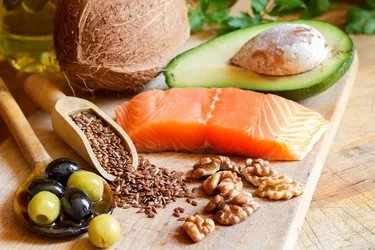Food and mood
Did you know that food has the ability to improve your mood, energy levels and concentration.
When it comes to your mood, foods have the ability to support our feelings of wellbeing.
But what foods can we eat to make us feel great!
Foods that are rich in Complex carbohydrates can help increase availability of the feel-good chemical serotonin in your brain, that bliss hormone.
Complex carbohydrates are also needed for the function of our hormones and low carbohydrate diets have been shown to impair thyroid function. Rapid changes in thyroid hormones can have a major impact on our emotions resulting in symptoms such as difficulty concentrating , anxiety, and depression. Therefore its important to include wholegrain complex carbohydrates that help support thyroid function as well as blood sugar levels.
Wholegrains such as oats contain fibre in the form of beta-glucan which is a soluble fibre that can help to support blood sugar levels as well as being rich in B vitamins, which are vital for brain health and antixidants.
Oats are rich in Vitamin B1 which is involved in turning glucose into energy, pantothenic acid (vitamin B5) is needed to produce the neurotransmitter acetylcholine (involved in learning and memory), vitamin B6 helps to convert the amino acid tryptophan into serotonin, and vitamin B12 is involved in the production of neurotransmitters such as serotonin and dopamine, among others, all of which help to regulate mood. So adding oats to your morning breakfast is a great way to start the day.
Oats are rich in soluble fiber, which helps to level out blood sugar levels by slowing the absorption of sugar into the blood. Oats are also a great source of iron with one cup of oats containing 19g of iron. Low iron levels have been associated with lethargy and mood disorders.
Did you know that not only does Protein help to keep you feeling fuller for longer by reducing the hunger hormone Ghrelin as well as boosting the peptide YY a hormones that makes you feel full, but it has also been linked to higher levels of dopamine and norepinephrine, which are brain chemicals that play a role in your mood (1)
Fruits and vegetables are high in vitamins, minerals, fibre and antioxidants that nourish your body and have also been shown to boost happiness.
Spinach and other green vegetables contain the B vitamin folate. Folate deficiency may impair the metabolism of serotonin, dopamine, and noradrenaline (neurotransmitters important for mood)
Bananas contain tryptophan the precursor for serontonin that can help to boost feelings of wellbeing.
Berries such as blueberries, strawberries, raspberries and cherries are rich in anthocyanins that have been shown to combat risk of depression.
Making sure that you include a rainbow of vegetables and fruit at each meal time can help to reduce the risk of anxiety and depression. Aim for at least 8 veg and fruit a day with the majority of them being vegetables.
Nuts and seeds are high in plant-based proteins, healthy fats, and fibre, they provide tryptophan, an amino acid responsible for producing mood-boosting serotonin. Almonds, cashews, peanuts, and walnuts, as well as pumpkin, sesame, and sunflower seeds, are excellent sources.
Nuts and seeds are also good sources of zinc and selenium which are vital for brain function, think pumpkin seeds, brazil nuts and walnuts.
Healthy fats such as omega 3 rich foods play a major role in brain functioning, with deficiencies in omega-3 fatty acids linked to mental health problems. Healthy fats such as avocado, extra virgin olive oil and olives can also help to reduce symptoms of depression. Oily fish such as salmon, mackarel and sardines are excellent sources of omega 3. playing a major function within the brain for brain development, neurogensis, neurotransmission and neuroinflammation. (2)
Opting for a nutritious breakfast can help to stabilise blood sugar levels helping to avoid those energy dips and possible low moods and food cravings.
Vitamin D can help to increase the levels of serotonin, one of the key neurotransmitters influencing our mood, studies have shown that deficiency may be linked with mood disorders, particularly seasonal affective disorder. Foods rich in vitamin D include mushrooms, sardines, fortified milks, eggs but in the summer months, vitamin d from the sun is your best way of increasing levels.
Cacao is rich in magnesium, iron, and copper and has 4 mood boosting serotonin, tryptophan, tyrosine and phenylethylamine, which can help with those feelings of happiness and wellbeing as well as alleviating symptoms of depression (3,4)
So making sure you have a well balanced diet including wonderful natural whole foods is so important in supporting our mental wellbeing as well as our physical health (5)
Huang, Q., Liu, H., Suzuki, K., Ma, S. and Liu, C., 2019. Linking What We Eat to Our Mood: A Review of Diet, Dietary Antioxidants, and Depression. Antioxidants, 8(9), p.376.
Lange, K., 2020. Omega-3 fatty acids and mental health. Global Health Journal, 4(1), pp.18-30.
Andújar, I., Recio, M., Giner, R. and Ríos, J., 2012. Cocoa Polyphenols and Their Potential Benefits for Human Health. Oxidative Medicine and Cellular Longevity, 2012, pp.1-23.
Nehlig, A., 2013. The neuroprotective effects of cocoa flavanol and its influence on cognitive performance. British Journal of Clinical Pharmacology, 75(3), pp.716-727.
5. Firth, J., Gangwisch, J., Borsini, A., Wootton, R. and Mayer, E., 2020. Food and mood: how do diet and nutrition affect mental wellbeing?. BMJ, p.m2382.

